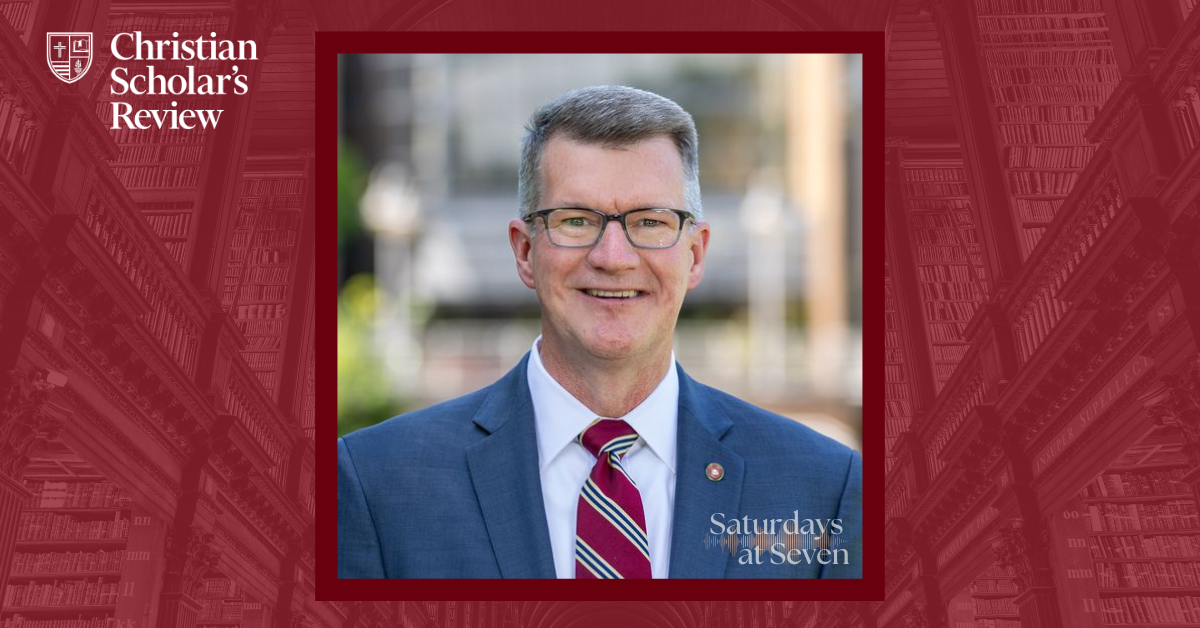
In the ninth episode of the second season of the “Saturdays at Seven” conversation series, Todd Ream talks with David Quigley, Professor of History, Provost, and Dean of Faculties at Boston College. As the chief academic officer, Quigley opens by exploring how he seeks to foster cultures reflective of the unique foci held by a myriad of academic units at Boston College while also striving to foster a culture across those units reflective of the charisms of the founding order, the Society of Jesus or the Jesuits. As an example, he discusses Boston College’s commitment to formative education and how such a process is expressed in the reform and advancement of the core curriculum. Ream and Quigley then discuss Quigley’s calling to history, the teachers and scholars who nurtured it, and the ways Quigley seeks to express that calling through teaching, writing, and service. One way Quigley has sought to express that vocation is by exploring the riches in his childhood hometown of New York City, his present hometowns of Boston and Cambridge, and the creation of means on and beyond the Boston College campus for various publics to appreciate those riches. Some of those recent means include walking tours of Boston for new members of the Boston College faculty and for undergraduate students enrolled in the courses Quigley teaches in the core curriculum. Quigley then discusses the discernment process that led him from service as a full-time faculty member to a full-time administrator along with his commitment to continue to teach at least one course a year. Ream and Quigley close their conversation by exploring Quigley’s vision for the academic vocation, his vision for the academic vocation for Boston College’s faculty, and the relationship those visions share with the Society of Jesus and the Archdiocese of Boston.

















